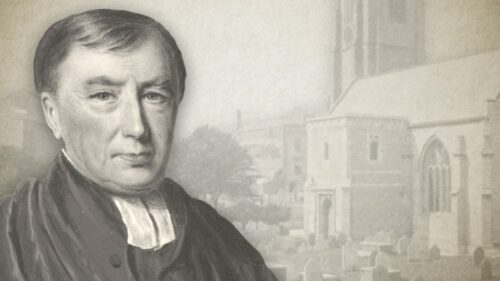
November 7—Morning Devotion
“And yet there is room.”—Luke 14:22
Room! where, and for whom? Room in the gospel of salvation, and for poor perishing sinners, in the blood and righteousness of Jesus Christ. Room in the heart of God the Father, in the love, grace, mercy, and peace of God the Son, and in the teachings, influences, and fellowship of God the Holy Ghost. Room in the plentiful provisions of grace, the calls of the gospel, the ministration of the word and ordinances in the house of prayer. “Whosoever will,” is the gracious invitation; whosever feels his heart made willing in the day of God’s power, “let him come and take of the water of life freely.” Lord, is there room for me? Thousands, and tens of thousands have found room through thy grace inclining them to come; and yet the scripture sweetly saith again this day, “And yet there is room.” Oh give me grace to see that I am one of the invited, one of the happy number that hath found room; and from experiencing the blessed fulness, riches, grace, suitableness, and all- sufficiency in the blood and righteousness of Jesus for poor sinners, I may proclaim every where around that others may find the same; that yet there is room. And Oh Lord! grant, that while yet there is room, multitudes that are ready to perish may come. And then all thy royal guests whom thou bringest to thy banquet, and who find room in all the mercies of Jehovah for redemption here below, will find room in the house not made with hands, eternal in the heavens.
Robert Hawker (1753-1827) was an Anglican (High-Calvinist) preacher who served as Vicar of Charles Church, Plymouth. John Hazelton wrote of him:
“The prominent features…in Robert Hawker's testimony…was the Person of Christ….Dr. Hawker delighted to speak of his Lord as "My most glorious Christ.” What anxious heart but finds at times in the perusal of the doctor's writings a measure of relief, a softening, and a mellowing? an almost imperceptible yet secret and constraining power in leading out of self and off from the misery and bondage of the flesh into a contemplation of the Person and preciousness of Christ as "the chiefest among ten thousand and the altogether lovely." Christ and Him crucified was emphatically the burden of his song and the keynote of his ministry. He preached his last sermon in Charles Church on March 18th, 1827, and on April 6th he died, after being six years curate and forty-three years vicar of the parish. On the last day of his life he repeated a part of Ephesians 1, from the 6th to the 12th verses, and as he proceeded he enlarged on the verses, but dwelt more fully on these words: "To the praise of His glory Who first trusted in Christ." He paused and asked, "Who first trusted in Christ?" And then made this answer: "It was God the Father Who first trusted in Christ."
Robert Hawker on the Biblical Covenants (Complete)
Robert Hawker's Poor Man's Morning Portions





